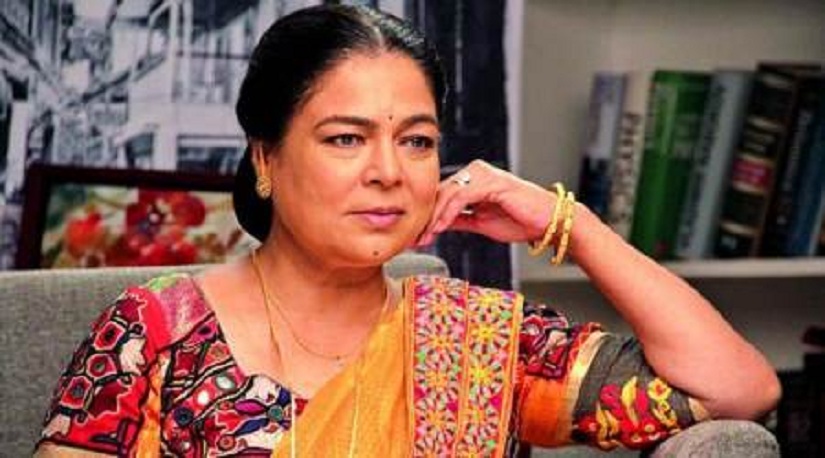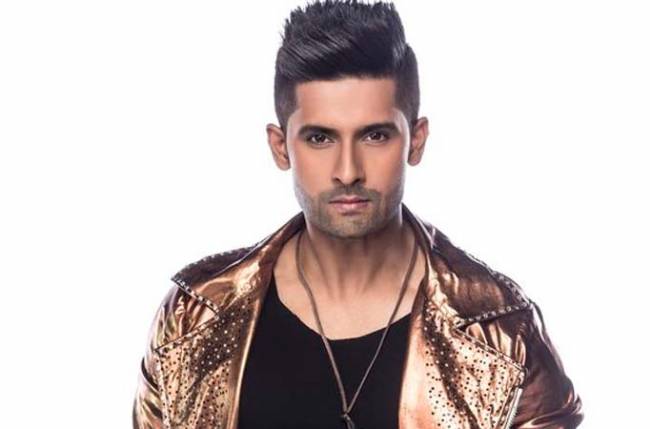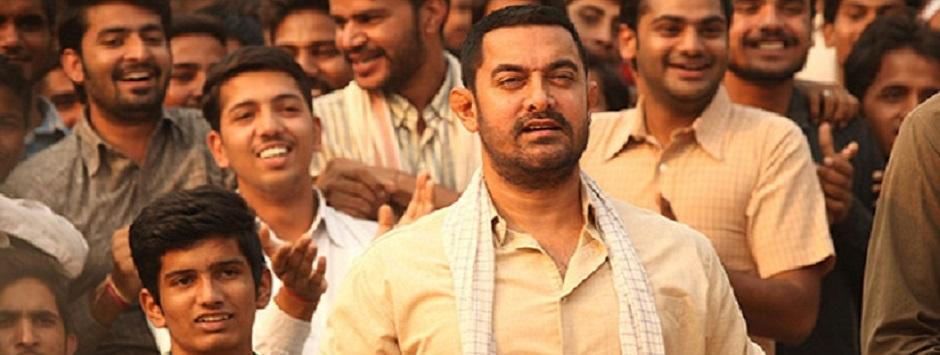With Reema Lagoo passing away, it’s the end of an era for iconic onscreen mothers

Vikram and Jyoti to get engaged in Sony TV’s Jaat Ki Jugni
May 18, 2017
Reeth signs up for web series
May 19, 2017In his acknowledgment discourse in the wake of winning the Oscar for Best Original Score for SlumdogMillionaire (2009), A.R. Rahman said thanks to his mom in the most ideal way anybody associated with Hindi movies would. He stated, “Negligible pass Maa hai… ” — the great Salim-Javed scripted line from Deewar (1975) always made an uncommon place for the character of the mother in Hindi movies.
For a very long time, the onscreen “Maa” was dependably intended to be Nirupa Roy, or Sulochana before her, until 1989 when the mallet was passed on to Reema Lagoo.
The veteran Marathi and Hindi film performing artist, who was additionally dynamic on Marathi arrange for very nearly forty years, Reema Lagoo, 59, passed away after a heart failure prior today and with her demise, the period of famous onscreen moms has reached an end.
reema-lagoo-dead-759
Reema Lagoo. Document photograph.
Well known Hindi movies would maybe be the main film on the planet where pigeonholing of a performer occurs at some other level. Here, a performing artist is not just related for a superior piece of their vocation with a particular part that they depict —, for example, Jagdish Raaj, who was dependably the police examiner or Iftekhar, who was so persuading as a police official that numerous a period he would waltz through traditions at Indian air terminals — additionally get appended to another performer on account of the relationship their characters shared.
This is the reason that after the achievement of Deewar Nirupa Roy was affectionately alluded to as ‘Amitabh ki maa’ or Nazir Hussain was the jagat daidee.
The year when Reema Lagoo moved toward becoming ‘Salman ki mummy’ in Maine Pyar Kiya (1989) was genuinely a transitional stage for not just the main man or the story in business Hindi movies additionally the supporting on-screen characters, particularly onscreen moms.
The establishment of the change over these parameters was laid by Mansoor Khan’s Qayamat Se Qayamat Tak (1988) where the legend was a takeoff from the Angry Young Man format promoted by Amitabh Bachchan and even the parts frequented by the then youthful stars Anil Kapoor (MeriJung, Mashaal, Karma), Jackie Shroff (Hero, MeraJawaab), Sunny Deol (Arjun, Dacait) or Sanjay Dutt (Jeeva, Naam).
Indeed, even the character on-screen characters depicting the older folks in the film were diverse where a father (Dalip Tahil) was not very far away in age or demeanor from his school going child (Aamir Khan). The “new” sort of great Hindi film story (melodies, moves, dramatization et al.) that was endeavored by Qayamat Se Qayamat Takm made its mark with Sooraj Barjatya’s Maine Pyar Kiya and in it, Reema Lagoo as the saint’s mom introduced the new period of the reel mother.
While Reema Lagoo was viewed as a “star” mother without precedent for Qayamat Se Qayamat Tak where she played the mother of the main woman (Juhi Chawla), in Maine Pyar Kiya that she presented the new-age mum for Hindi movies. Reema Lagoo’s mom character, Kaushalya Choudhary, was a takeoff from the Nirupa Roys and Sulochanas for she could superbly adjust the old and the new.
34
Reema Lagoo in Qayamat Se Qayamat Tak.
She not just knew her child, Prem (Salman Khan) alright additionally realized what was beneficial for him and for a change both mother and child were in agreement. Indeed, she even arranges the way the child purports his adoration for Suman (Bhagyashree) and enables him to go stand up before her significant other and Prem’s tyrant father (Rajeev Verma) without “surrendering” her pati.
At some level contrarians would contend that Maine Pyar Kiya’s Kaushalya just refreshed the legend being fixing to maa ka pallu aspect of famous Hindi silver screen, however what the part accomplished inside the domain of well known Hindi film was downright striking, and it was all on account of the performing artist that Reema Lagoo was. Amusingly enough that year, 1989, likewise had Nirupa Roy in one of her last trips as Bachchan’s mom in Toofan (1989) where practically everything about the film and the kind it spoke to appropriate from the story, the tropes, the plot focuses and additionally Roy’s character were starting to looking dated.
The 1990s were genuinely the brilliant stage for Reema Lagoo in movies as well as TV.
Notwithstanding when she played the “mother” to most top stars in standard Hindi movies her parts were not cut from an indistinguishable texture from a Nirupa Roy. She got the chance to depict characters with a couple of a larger number of shades of dark than the blacks and whites that onscreen moms before her were destined to manage. Her single parent in Aashiqui (1990) had a larger number of subtleties than both the heroes Rahul Roy and Anu Agarwal, and her calculative class fixated authority in Yeh Dillagi (1994) remains a treat to look for she changed the one-dimensional part a Lalita Pawar or a Bindu would have been given in the 1960s or 1980s into something of a socio-political articulation.
She additionally highlighted in the Barjatya’s follow-up to Maine Pyar Kiya, Hum Aapke Hai Koun … ! (1994), where she played Salman Khan’s relative and later Kuch Hota Hai (1998) where she repeated a similar character. This was likewise the stage where Lagoo forayed into TV and two of her shows Srimaan Srimati (1994) and Tu Main (1994) turned out to be hugely prominent.
7-43
Reema Lagoo and Supriya Pilgaonkar in Tu Main.
Starting in the mid-1990s the subjects and topics that were viewed as the pillar of well known Hindi for a very long time started to experience an ocean of progress. This was a stage where the maa, baap and bhai, bhen characters were being re-taken a gander at and as the crowd was getting more youthful by the year these characters, as well, couldn’t continue as before. In the meantime, stars, for example, Amitabh Bachchan were re-demonstrating themselves as characters performing artists that prompted a whole era of on-screen characters who exceeded expectations at these parts being pushed off the radar. It was around this time Reema Lagoo got the chance to play one of the best-composed characters in prevalent Hindi silver screen and maybe the one that would come to be viewed as her most noteworthy part.
Mahesh Manjrekar’s Vaastav (1999) was the account of Raghu (Sanjay Dutt), who goes from a nice person to control the Mumbai black market, and his association with his mom Shanta (Reema Lagoo) is the ethical compass that reveals to him exactly the amount he had strayed.
The film had many characters and circumstances that may seem cliché to Hindi silver screen however it was the peak of the film where a broken Raghu on the keep running from the cops and opponent group individuals asks his mom to free him. In a chilling epiphany where Shanta understands that the fantasizing, insane man in front is not her child she takes the weapon from Raghu’s hands and pulls the trigger.
One could securely say that Vaastav’s Shanta could be the 1990s’ Radha from Mother India (1957) and keeping in mind that Radha may be viewed as a more noteworthy part Shanta in any case in a way outperformed the other awesome onscreen Maa from Deewar.




